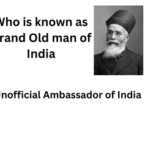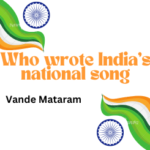Supreme Court, dowry death and Section 304B of IPC

The Bench of the Supreme Court consisting of CJI N.V. Ramana and Justice Aniruddha Bose stated that courts should interpret the provisions of dowry death liberally, keeping in mind the law’s intention to punish dowry and bride-burning.
It was further stated that it is absurd to interpret the term “soon before death” as “immediately before death”.
“The phrase ‘soon before’ as appearing in Section 304B cannot be construed to mean ‘immediately before’. Instead it should be interpreted as any harassment which has a “proximate and live link to death”. The Bench was also of the opinion that the straitjacket and literal interpretation of these provisions has blunted the battle against the long-standing social evil. It advised trial courts not to take a pigeon-hole approach to Section 304B in categorizing death as homicidal or suicidal or accidental.
The Bench also laid down certain guidelines to trial courts:
- While conducting the examination of accused under Section 313 of the Crpc, any incriminating material should be examined in a fair manner.
- The Court must seek response from the accused regarding incriminating material.
- Courts should question the accused fairly, with care and caution.
- Courts should be careful during the conduction of the trial as the crime is of precarious nature
LEARNING FROM HOME/ WITHOUT CLASSES/ BASICS
Dowry is one of the persistent social evils of Indian society which has assumed tremendous proportion compelling government to pass different legislations to stem the social evil
In 1961, Dowry Prohibition Act was passed which was the first penal law to ban this practice.
In 1983, Section 498-A was added to the Penal Code, 1860 which referred to both physical and mental cruelty as cognizable and non-bailable offence.
As per Section 304B of IPC, it is considered as a case of dowry death, if a woman dies of burns or other bodily injuries or “otherwise than under normal circumstances” within seven years of her marriage and should have suffered cruelty or harassment from her husband or in-laws “soon before her death” in connection with demand for dowry. The law punishes convicts with minimum seven years imprisonment.
Intentional Death of women –Section 302 IPC: – If a person intentionally causes woman death then punishable under section 302 IPC.
Fourthly, Abetment of Suicide of Woman- Section 306 IPC:- If husband and his relatives create a situation which led to the suicide of woman within seven years of marriage fall within the ambit of section 306.
Code of Criminal Procedure, 1973
Section 174 and 176 deals with the investigation and enquiries related to the causes of unnatural deaths by police and magistrate respectively. The amendment act of 1983 makes mandatory for police to send the body for post-mortem examination if the death of woman occurred within seven years of marriage in a matter of suicide or any dubious matter. It also empowers executive magistrate to inquiry into the death of a woman in similar circumstances.
Indian Evidence Act, 1872
A new provision, section 113B has been created regarding the burden of proof in dowry death according to which court has to presume that a dowry death was caused by the person who is shown to have subjected the woman to cruelty or harassment soon before her death.




0 Comments